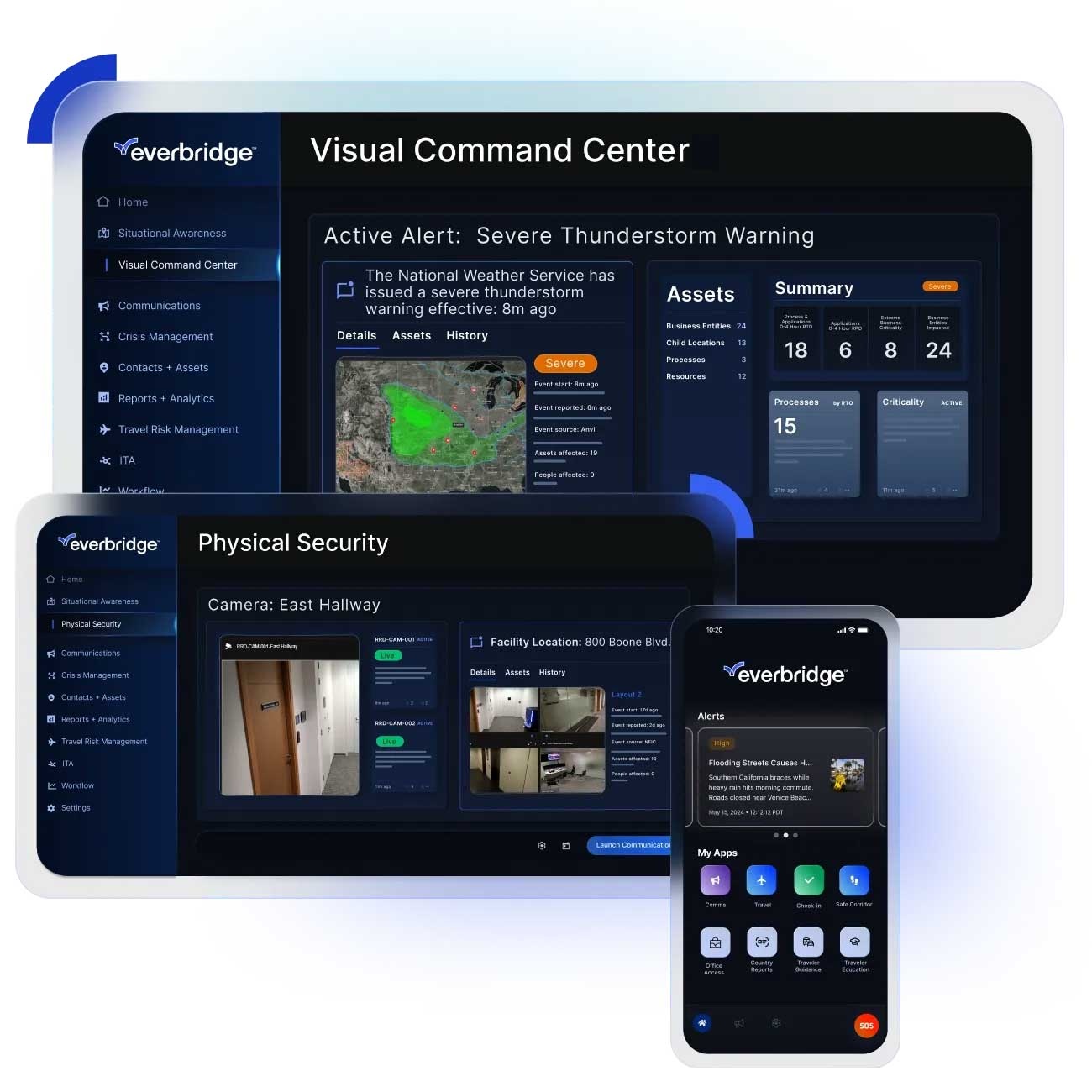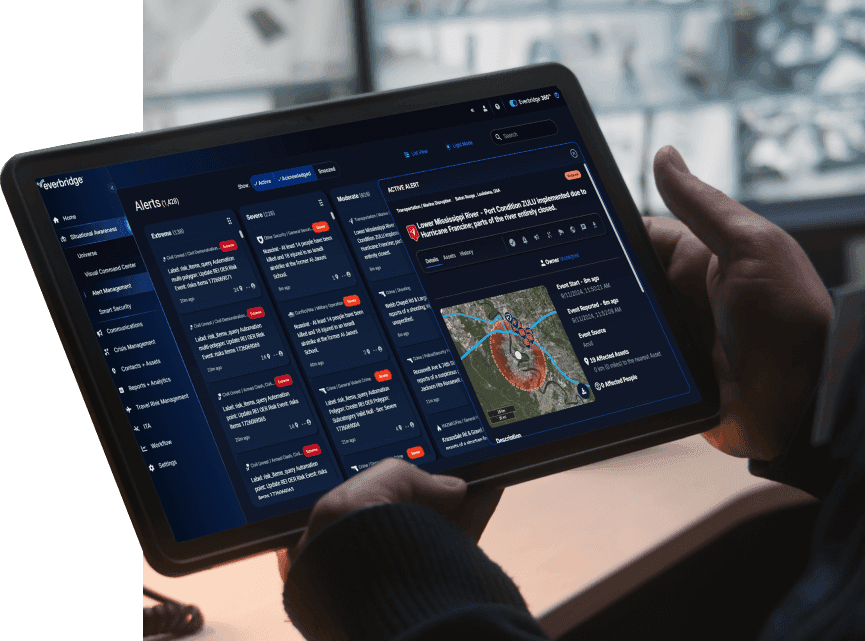Everbridge 360™ Critical event management
Stay ahead of the expanding risk zone with Everbridge 360™
The Everbridge critical event management (CEM) platform empowers organizational resilience by enabling you to know earlier, respond faster, and continuously improve how you deal with potential threats.
How Everbridge 360™ helps your organization manage critical events
Everbridge 360™ offers powerful risk mitigation capabilities – driven by purpose-built AI – that are easy to use, streamlining the management of critical events on one seamless platform. It enables you to enhance your emergency response, reduce communication delays, and boost both operational efficiency and organizational resilience.
Protect your employees
Employees can confirm their safety, request assistance when needed, and easily access vital location-specific information through two-way communication.
Analyze and act on risks to your organization
Stay ahead of risks with real-time access to detailed situation reports and comprehensive global risk data. Make informed decisions confidently, powered by accurate, up-to-the-minute insights.
Support throughout your resilience journey
Everbridge 360™ offers flexible packages to support you wherever you are on your resilience journey. The platform is highly secure and scalable to support you wherever you operate globally.
Elevate your critical event management capabilities with Everbridge 360™
Managing critical events is as easy as 1-2-3
Everbridge 360™ represents our relentless dedication to provide our customers with the most comprehensive and intuitive user experience to manage critical events across a single platform so you can know earlier, respond faster, and improve continuously. In the face of an increasing frequency and volume of critical events, our platform empowers you to effectively manage these events, minimize communication delays, and improve overall organizational resilience.
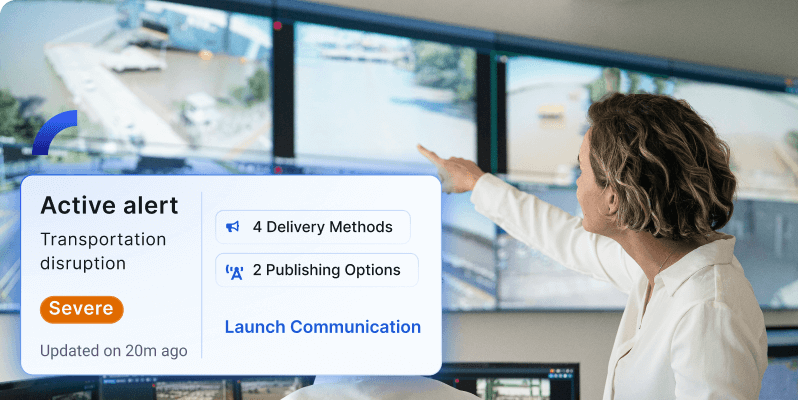
1. Know earlier
With advanced business continuity planning and leading risk intelligence, you’ll get real-time insights to detect threats wherever they arise, helping you quickly identify risks to your people and operations.

2. Respond faster
When critical events happen, speed matters. Our Alert Management feature enables seamless, “one-click” responses, from emergency communications to clear instructions, keeping your employees safe and your business protected.

3. Improve continuously
Adapt and improve with our detailed after-action reports, response analytics, and interactive dashboards. Turn data into insights to strengthen your organization’s resilience for the future.
A flexible and scalable solution for managing critical events across any organization
Everbridge 360™ is available in three packages, each designed to meet the specific needs of organizations, regardless of their size or complexity. Download our detailed benefit matrix to discover which Everbridge 360™ version is best suited to your organization’s needs.
Everbridge 360™ Core
Everbridge 360™ Professional
Everbridge 360™ Enterprise
Your organization’s need
“I need to communicate with my employees during an emergency.”
“I need to know when to communicate with my employees, and fully understand the threats.”
“I need to know when to communicate with my employees, understand the threats, and manage risk at scale.”
Size of organization
Large teams
Multiple teams
Global enterprises
Key features
- Critical communications
- Two-way mobile communication
- Weather alerts (U.S. only)
- Critical communications
- Two-way mobile communication
- Weather alerts (U.S. only)
- Real-time risk management
- Efficient alert handling
- Critical communications
- Two-way mobile communication
- Weather alerts (U.S. only)
- Real-time risk management
- Efficient alert handling
- Crisis management
- Contextual feeds
- Access to situation reports and global risk data
- Access to Visual Command Center
- Resilience insights
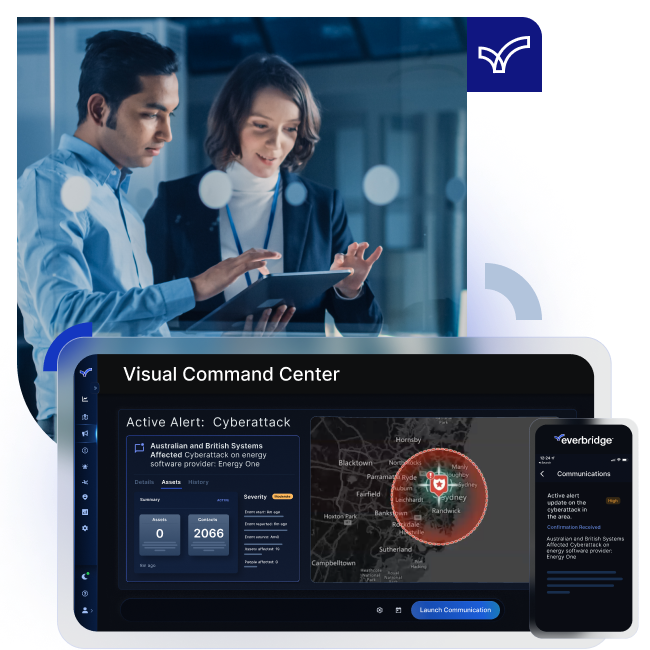
How Everbridge 360™ helps you achieve true organizational resilience
Everbridge 360™ seamlessly integrates advanced communication tools, real-time risk intelligence, and incident management into a single, unified platform. With powerful features, such as two-way communication, you can instantly connect with employees during emergencies, gather real-time feedback, and provide critical updates to ensure safety.
See Everbridge 360™ in action
Embark on a virtual tour of the Everbridge 360™ platform, guided by AI Michael. Discover how Everbridge serves as a vital partner in fostering a resilient future for organizations.
What is Critical Event Management?
Critical Event Management (CEM) is an essential framework of standards and best practices that forward-thinking organizations are integrating into their strategies for managing operational risks from unexpected events. By adopting effective CEM practices, organizations can better prepare for, respond to, and mitigate crises. We help you escape the expanding risk zone that organizations see today, regardless of their scale or location. This not only safeguards revenue, but also enhances operational efficiency and reduces costs.
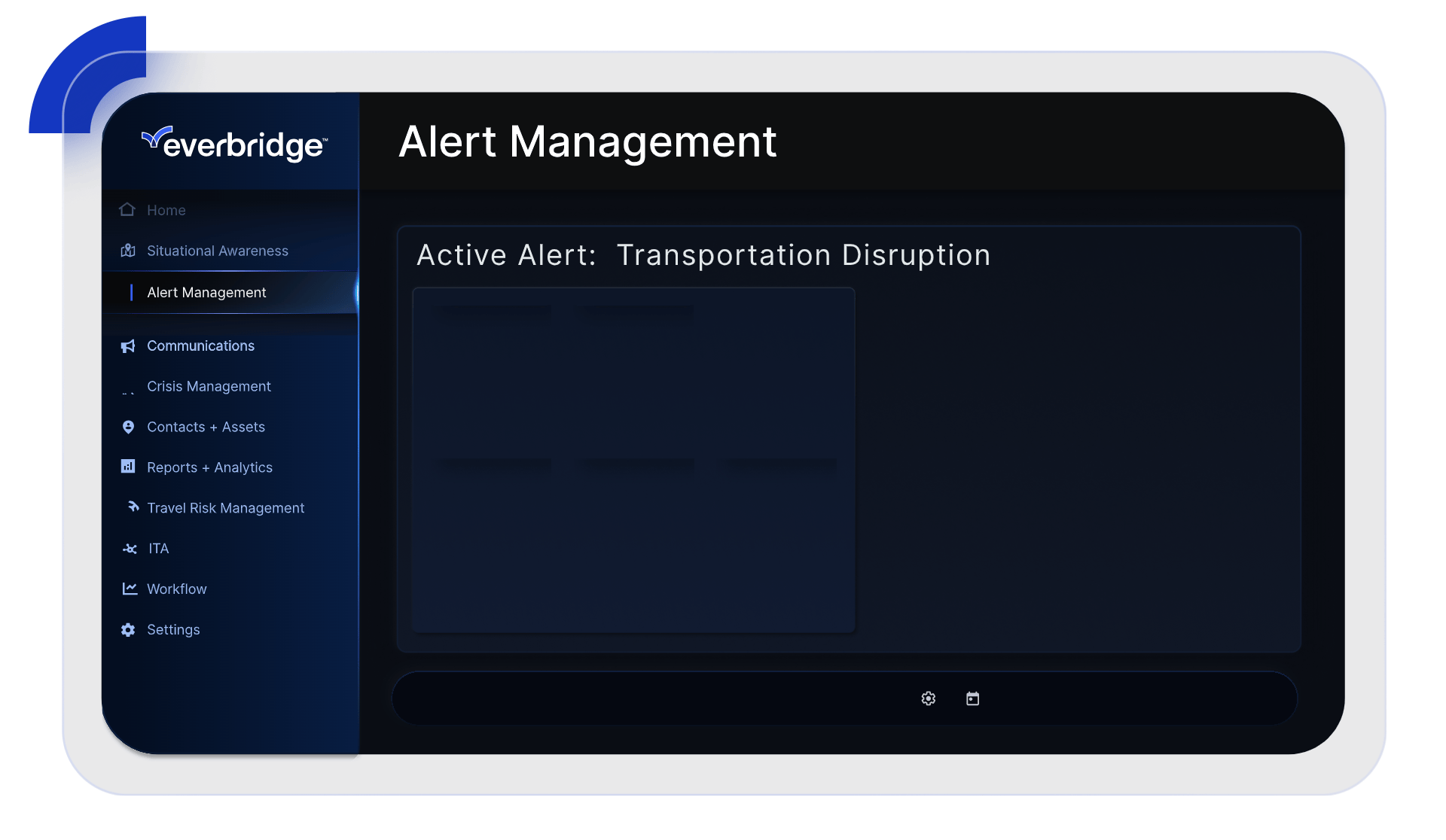
Leading organizations trust Everbridge to keep

Proven ROI with Everbridge 360™
According to Forrester, Everbridge 360™ delivers an impressive 358% return on investment (ROI). Forrester found that organizations using the platform could expect significant benefits, including efficiency gains, reduced IT downtime, and improved security team productivity.


Global threat outlook 2025
Download the report for analysis on industry surveys, insights into the threats resilience leaders are watching, and ways to adopt a more flexible and effective approach to readiness.
Discover why Everbridge has been recognized as a Leader in The Forrester Wave™: Critical Event Management
Experience the future of organizational resilience today with Everbridge 360™

Popular CEM resources

2025 Global Enterprise Resilience Report: Progress during uncertain times
Watch this on demand webinar to gain insights from the 2025 Global Enterprise Resilience Report.

How to create a quantifiable business case for Everbridge Critical Event Management
Developed by Forrester Consulting, this checklist walks you through how to build a rock-solid, quantifiable business case that not only convinces stakeholders of the imperative to invest in resilience but drives real results.

Building resilience with the Everbridge critical event management platform
Threats and disruptions of all types are increasing, a higher frequency equates to a bigger impact on populations and businesses.

Best practice blog: What is crisis management?
Learn proven strategies for assembling a crisis management team to help protect your organization, plus how to build, evaluate, and test a comprehensive crisis management plan.
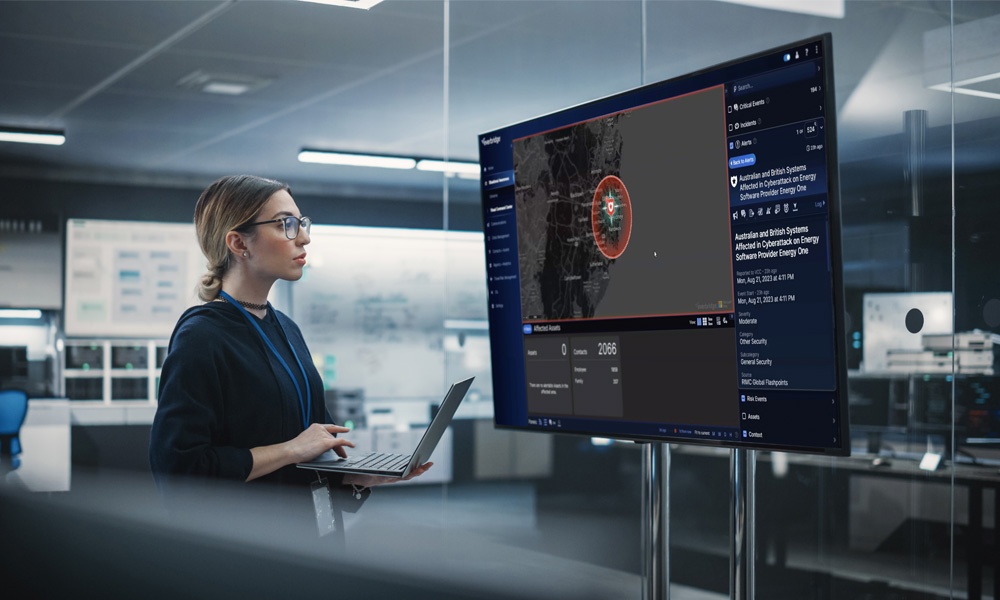
2025 Global Enterprise Resilience Report
Download the report for analysis on industry surveys, insights into the threats resilience leaders are watching, and ways to adopt a more flexible and effective approach to readiness.

The admin’s guide to successful system administration in 2025
Successful system administration is shaped by evolving best practices, and the growing importance of security, efficiency, and user experience. Join us for a review of what defines success for admins in 2025.
